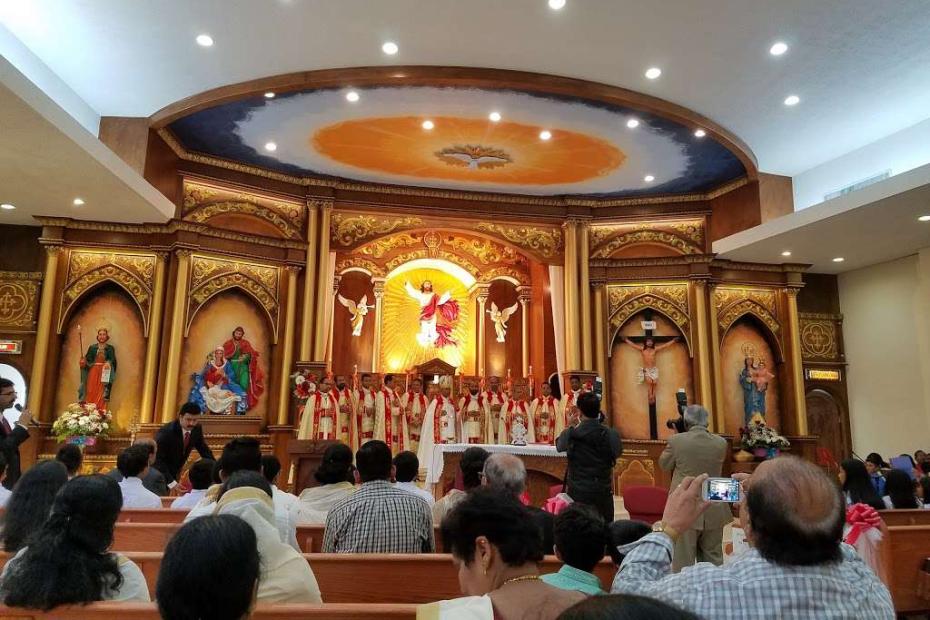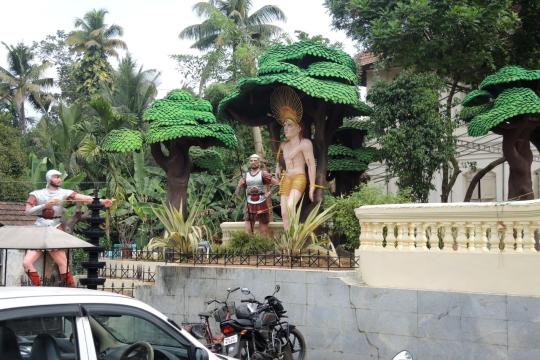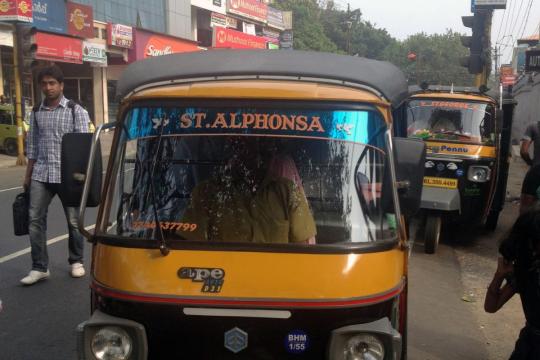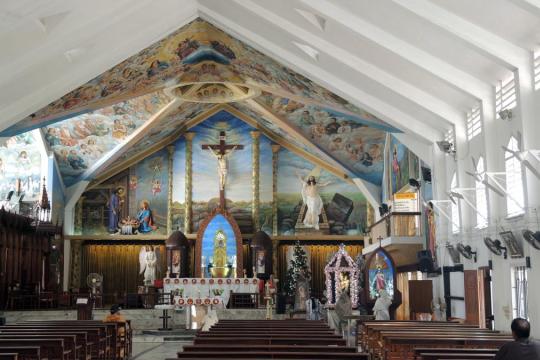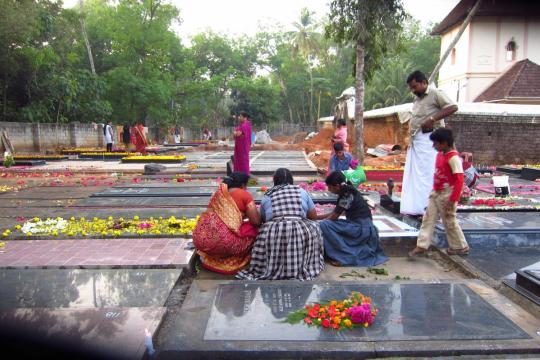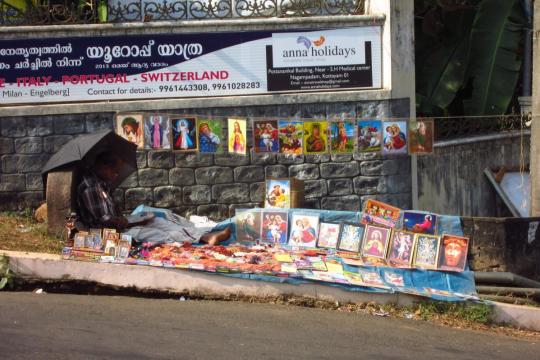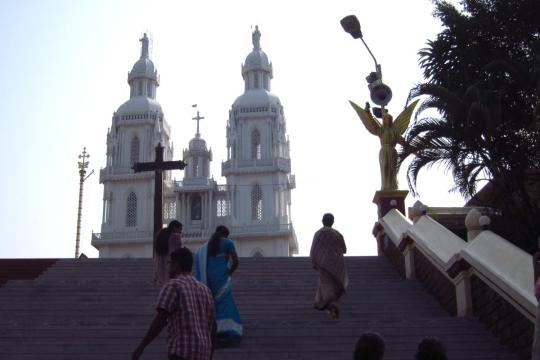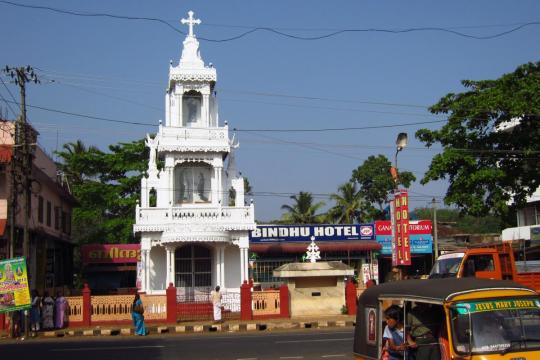Migration plays a significant role in the lives of Syro-Malabar Catholics. Families commonly have at least one family member who has migrated for employment purposes, particularly to the Gulf States, but also to Europe, other parts of India, and other parts of the world. A 2013 study claims that three-quarters of Syro-Malabar youth age 20-32 have migrated from Kerala, the home state of the Syro-Malabar Church.1 The Church claims that more than 500,000 Syro-Malabar Catholics are living abroad, and half as many are living in parts of India outside of dioceses of the Syro-Malabar Church. The same survey also cites large numbers of people over age 32 who "have been working over a long period of time outside Kerala and have virtually settled in their places of work." Even as new churches are being built all over Kerala, sign of prosperity in the Church there, migration poses a particular challenge to the Church to find ways to minister to Syro-Malabar Catholics beyond Kerala.
Kerala is the best educated state in India, and through Catholic schools, Keralite Catholics have a strong start on English, nursing, and other skills that serve them well in the global marketplace.
Kerala demographer K.C. Zachariah estimates that Syrian Christians there migrate at almost double the average rate for all Keralites.2 Higher migration and lower fertility rates have actually meant that Syrian Christians actually declined as a portion of the population of Kerala since peaking in 1961 at 21.2%.3
Believers recreate the Kappalottam feast in Kuwait.
- 1 "About 75 per cent of Syro-Malabar youth are migrants, finds survey," The Hindu, accessed February 18, 2019.
- 2K.C. Zachariah, The Syrian Christians of Kerala (Hyderabad, India: Orient Longman Private Limited, 2006), 17.
- 3Zachariah, The Syrian Christians of Kerala.
